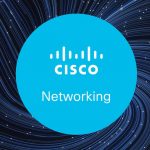Networkers are developers
Here’s some news: If you’re building and running a network, you are a developer. Why? Because your network is transforming and getting more capabilities. Your network is a software system that runs software and hardware. Your network is programmable. Your network has APIs. Your network is code. Your network is becoming an intent-based network. If you are a developer of networks, you are a network developer.
Now let me explain more about what I mean by “developer.” When I say developer, I don’t mean you have to be a coder who pounds out hundreds of lines of code a day. I do mean you need to be a power user of software, because your network is a big software system. Now that your network is programmable with network APIs, you need to understand how the network can respond to and interact with applications at all layers of the network stack and across network domains. Your title may be network engineer/admin/architect, but you are the developer who will super-charge the business opportunities available with the programmable network.
These two types of developers, coders and power users of networks, need to work together. During our various DevNet hackathons, we found that the winning teams are always combinations of these two. The winning teams have network experts who understand the power of software and APIs along with coders who can pound out lines of code. When talking to our customers who have successfully transformed their networks to embrace programmability in their workflows, they have said their secret to success was to pair up application developers with network and IT professionals.
Intent-based networking
Intent-based networking is a major advancement in networking that includes both new capabilities and a new operational model for networks, and this combination drives the connection between the network and business. Specifically, a business owner can state a business intent for the network, such as “add a new cash register to my business” or “Webex is a business critical application”, then the intent is translated into network action. The action is then activated in the network and assurance is used to continuously monitor, learn, and optimize the network’s performance in operating the intent.
Cisco just made an announcement about releasing new developer capabilities for intent-based networking. Cisco’s new DNA Center platform adds programmability to DNA Center, which is its command and control center for campus, branch, and edge networks. DNA Center lets you create, automate, enforce and verify policies across the network. The combination of DNA Center platform with the programmability of Cisco’s data center, wireless, and service provider networks and Cisco’s security, IoT, and cloud solutions gives Cisco the broadest programmable networking portfolio in the industry.
DevNet announcements for intent-based networking
We’re pleased to announce the new DevNet DNA Developer Center. This developer center helps developers, solutions architects, and business professionals use the DNA Center Platform. Developers can find solutions, use cases, developer resources, and learning materials they need to build solutions using the DNA Center platform. The DevNet DNA Developer Center includes a library of APIs and SDKs, Sandboxes, Learning Labs, a support community, and partner and developer use cases and documentation. Using the new DNA Center APIs, infrastructure developers can empower application developers with Self-Service IT operations. Developers can go to the DevNet DNA Center Sandbox to code with the newest EFT release of DNA Center platform running a live network with hardware and software network devices.
We also just announced that Cisco’s DevNet community has grown to 500,000 members. Half a million people writing code and sharing solutions is what I call the DevNet Effect – it’s going to catalyze a new level of innovation in networking. To harness the innovation done by the community, we announced DevNet Code Exchange to share code from Cisco and the DevNet community and DevNet Ecosystem Exchange to help people build solutions by finding the ISVs, IHVs, and SIs that work with our platforms.
We’re also pleased to announce software for the DNA Center platform is on DevNet Code Exchange and solutions for the DNA Center Platform on DevNet Ecosystem Exchange.
Finally, I’d like to invite the community to Code Intent with DevNet. We are inviting you to “make a wish” for a business intent you would like to see built. We are also inviting developers to submit code that activates an intent using DevNet Code Exchange. We look forward to catalyzing community innovation in intent-based networking!
Next steps
With all these resources, you’re probably wondering how to get started in the world of intent-based networking. Here are some tips:
- If you’re ready to get hands on and start coding, take a coding 101 class.
- If you want to build solutions then take a look at the DevNet DNA Developer Center.
- If you’ve been coding and using network APIs, we have a special request – Code an intent and share it with the DevNet community.
You can start now by going to developer.cisco.com/startnow.
You are the developers who will build the future businesses and applications that run on the network. If you’re at Cisco Live, come to the Innovation Theatre on Wednesday, at 12:15 to hear more. I’ll be demoing our newest APIs and giving you a playbook on building winning applications for the intent-based network with DevNet.


So amazing this vision!!! But the mision is foing to be better!!! Thank tou Susie
Future is about platforms and great to hear DevNet platform has already more than 500K members.
Susie,
Thank you for co-founding and leading Cisco DevNet!!
Thanks for the new tools — DevNet Code Exchange and DevNet Ecosystem Exchange, and for StartNow at developer.cisco.com/startnow/
Finally, thanks for all the resources!! They truly are amazing!